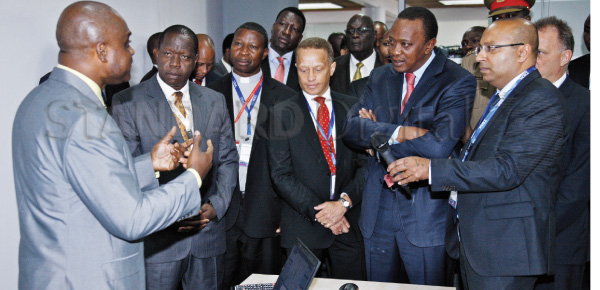×
The Standard e-Paper
Kenya’s Boldest Voice
 |
| President Uhuru Kenyatta (second right) is taken on a tour of IBM Research Lab Africa by Chief Scientist Dr Uyi Stewart (left) during its launch in Nairobi, Friday. [PHOTO: PSCU/STANDARD] |
BY WINSLEY MASESE and FRANKLINE SUNDAY
NAIROBI, KENYA: Kenya’s profile as a technology hub is set to receive a major boost as technology giant IBM yesterday opened its first research lab in Africa in Nairobi.